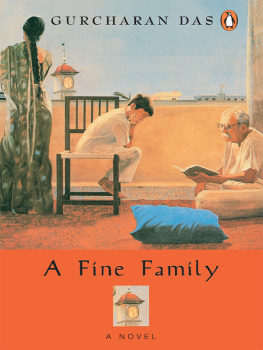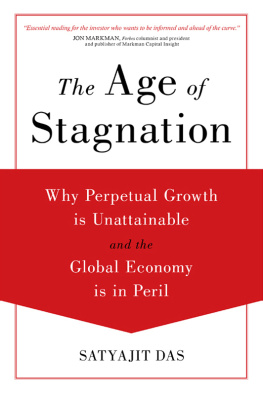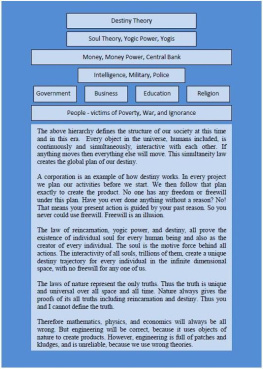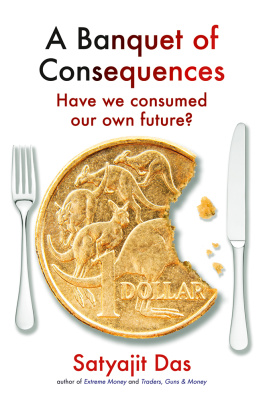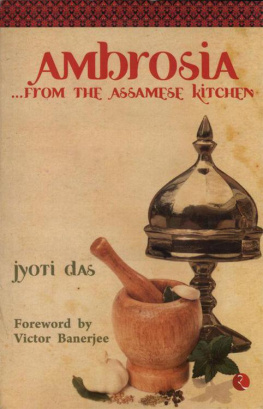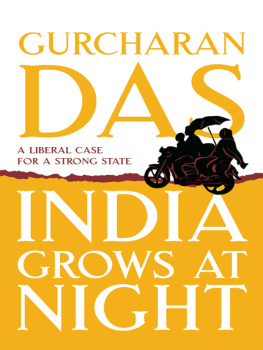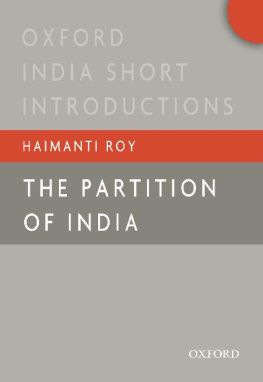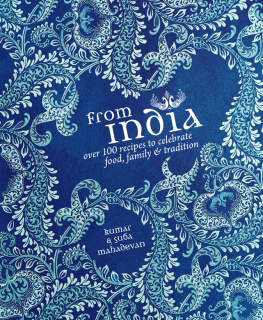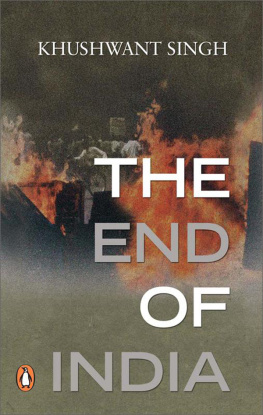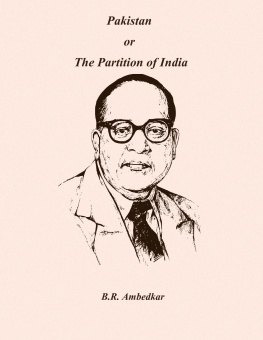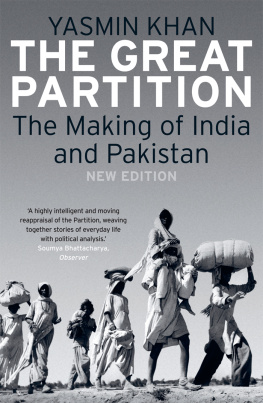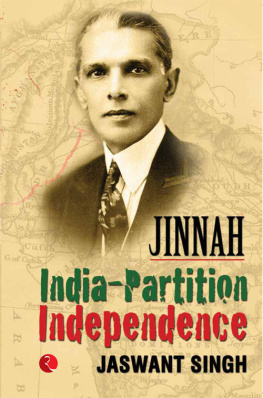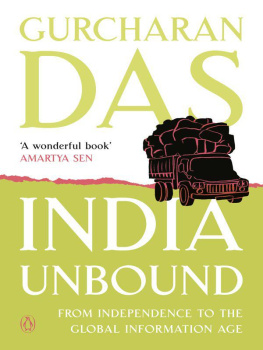Gurcharan Das is an author and management consultant. He is the author of three plays, which have been performed Off-Broadway, at the Edinburgh Festival and in many cities in India and abroad. Mr Das graduated with honours in Philosophy and Politics from Harvard University. He presently writes a regular column for the Times of India and other newspapers. He and his wife live in New Delhi.
He was CEO of Procter & Gamble India and Vice President and Managing Director, Strategic Planning, Procter & Gamble Worldwide. He is presently chairman of Chrysalis Capital, Inalsa, and the advisory board of Citibank India. He is member of other boards, including the governments Foreign Investment Promotion Council. He also attended Harvard Business School, where he is featured in three case studies.
1
Unlike other country towns on the Indo-Gangetic plain, Lyallpur was not merely a white, dusty, anarchic jumble of flat-roofed brick houses. Thanks to the canal, it was greener than most, and many of its roads were lined with trees. First came the canal in the last quarter of the 19th century; then an orderly town was planned and built; and they named it after the ruling British Lieutenant Governor of the Punjab, Sir James Lyall, BA. My grandfather, an ambitious young lawyer, proudly moved to Lyallpur in the early twenties of this century to start his practice. I was born there a generation later when the sheesham trees soared to the sky.
In the middle of the town was a brick clock tower, from where eight roads emanated, and the town spread out in concentric circles. Our house was off one of these roads, called Kacheri Bazaar, because the district courts were located there. Our road led to the Company Bagh, which sprawled sumptuously over forty acres, and was named after the East India Company. We were not far from the clock tower and our street was lively in the mornings and evenings, but quiet in the hot afternoons when most people slept. The days were drenched with sunshine and the nights were so clear that the stars seemed to hang like lamps as the fireflies glittered around the mango tree.
Since it was hot in the summer and cold in the winter, our daily life varied considerably with the seasons. We spent most of our time in the two open courtyards of our house. The main courtyard was on the ground floor, towards the north end of the house; the womens courtyard was smaller and upstairs, towards the south side. In the middle of the main courtyard grew a tall shady mango tree, under which was conducted the chief business of the household. In the summer we even slept in the courtyard. As the sun became warm, we moved to the covered veranda which surrounded the courtyard. By midday we went deeper into the cooler rooms inside, as the chick blinds made of finely-split bamboo were lowered on the veranda to cut the glare of the burning sun. The servant sprinkled water over the matted screens, made of the roots of the fragrant khus-khus, which covered the important rooms, and the house prepared for sleep. Later in the afternoon we returned to the veranda around tea time, then back to the courtyard to enjoy the evening breeze and the brilliant stars at night.
In the winters, the process was reversed. The household slept inside in the cold nights and gradually came out with the sun. We spent most of the day in the luxurious warmth of the North Indian winter sun, moving our jute charpais according to the suns path, and returned inside at sunset.
Around four oclock in the afternoon, Grandfather, whose name was Dewan Chand but whom everyone called Bauji, used to come home from the courts. We would eagerly await his arrival since he always brought home fresh sweets from the Bengali hunchback. He would bring spongy rasgullas of fresh cream, lustrous gulab jamans which floated in a thick syrup, and occasionally pistachio barfi for the sophisticated, but which attracted us kids because it had shiny silver paper on top. As soon as he reached the massive wooden gate of the house, Bauji would loudly clear his throat, which was a signal to everyone in the house. Bhabi, his daughter-in-law, would quickly cover her head and face with an airy du-patta so as not to be directly seen by her father-in-law; Bhabo, his wife and my grandmother, would say her last goodbyes to the Khanna ladies who would quietly slip out of the back gate after an hour of tea and gossip; Tara, his eldest daughter, would go to the kitchen and put on water for tea; Big Uncle, his stylish son, would go to his room and change for tennis; the grandchildren knew that it was the last round of the dice before scores would be tallied in the afternoon game of Parcheesi.
Bauji had other uses for his harsh, grating cry. When he cleared his throat in his office it was a signal to his client that the interview was over, much as in a government office the bureaucrat signals the end of an interview by noisily pulling back his chair. Occasionally in the middle of an interrogation he would suddenly strike terror in the witnesss heart with the same piercing, strident sound as he deliberately cleared his throat.
Bauji was a Punjabi corruption of the Bengali Babuji. It meant a man of western learning, specifically someone who had learned the English language. The word had not yet acquired its pejorative connotation of a petty clerk, and Grandfather was happy with it since it had a sense of honour attached to it.
As we sat drinking tea on cane chairs in the veranda, Bauji would talk of his latest case in court. Big Uncle would sometimes interrupt with an appreciative remark on the quality of the hunchbacks sweets. Today the hunchback has used just the right amount of sugar and milk, he would say. Everyone would agree and Bauji would continue, not noticing the interruption. The children were not allowed to drink tea. Instead we got flavoured sweet milk diluted with ice and water. Once in a while as a treat we were allowed to drink coloured soda water from bottles which had a marble on top.
One day, much to our horror, Bauji did not bring sweets. Instead he brought fruit. Immediately the whole house rose in revolt. Bauji eventually won the day as he brought out all his legal tricks and by the end of the evening persuaded us that sweets were bad for health. And so the house reluctantly switched to eating fruit in the afternoons. He would bring mangoes, leechies and chickoos in the summer, apples in the autumn, and oranges and maltas in the winter. Slowly the air began to smell differently. But for months on end we talked nostalgically about the hunchbacks sweets.

